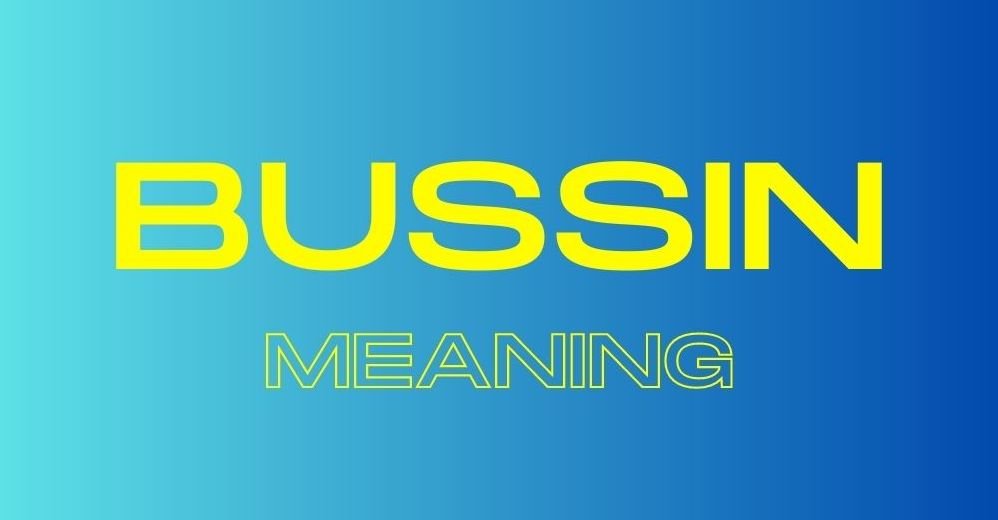Introduction
In the ever-evolving landscape of language and slang, Gen Z continues to surprise with their unique vocabulary. One such term that has gained significant popularity is bussin.
This article aims to delve into the meaning, origin, and widespread usage of this slang term. From its humble beginnings in the African American community to its viral presence on platforms like TikTok, bussin has become a powerful expression of praise, particularly when it comes to food.
So buckle up and join us on this linguistic journey as we explore the fascinating world of bussin.
Unravelling the Meaning of Bussin
At its core, bussin is an adjective used to describe something exceptionally good or delicious. While it is most commonly associated with food, its usage has expanded to encompass other awe-inspiring aspects of life.
Whether it’s a delectable meal, a fashion choice that turns heads, a sleek-looking car, or even some cleverly crafted lyrics, bussin serves as an enthusiastic stamp of approval from the younger generation.
The Origins of Bussin
The exact origins of bussin are somewhat elusive, but it is believed to have originated in African American Vernacular English (AAVE). Originally, bussin was associated with dancing and could be traced back to at least 2009.
However, with the advent of technology and the rise of social media, bussin took on a new meaning and started being used to describe delicious food. This linguistic evolution showcases how language adapts and morphs with changing times and cultural influences.
The Demographic of Bussin Users
The early adopters of bussin were primarily from the African American community, who used the term to convey their love for dancing. However, with the widespread use of social media platforms like TikTok, bussin quickly gained popularity and transcended racial and ethnic boundaries. Today, it is predominantly used by Gen Z-ers, teenagers, and young adults who are well-versed in the ever-evolving landscape of slang.
Bussin in Action: Examples and Context
To grasp the full essence of bussin, let’s explore a few examples that showcase its usage:
- “I read the reviews of this restaurant, and most of the reviews said that the food here is bussin’.”
- “Let’s go eat some bussin’ food and enjoy the night!”
These examples demonstrate how bussin is used to express enthusiasm and appreciation for a specific culinary experience. It adds an extra layer of excitement and amplifies the pleasure derived from indulging in delicious food.

TikTok and the Rise of Bussin
With the advent of TikTok, a platform known for creating trends and popularising slang terms, bussin found its way into the mainstream. The platform’s short-form video format became the perfect breeding ground for challenges and phrases to take root. One notable figure who inadvertently sparked the bussin craze on TikTok was Janelle Rohner, a health and food guru.
The “Is It Bussin, Janelle?” TikTok Challenge
Janelle Rohner’s TikTok page focused on showcasing keto meals and promoting her low-calorie cookbooks. In one of her videos, where she creatively presented an obscure bell pepper sandwich, users left sardonic comments describing it as bussin. Perplexed by this unfamiliar term, Janelle asked her 3.4 million followers for an explanation.
What followed was the “is it bussin, Janelle?” TikTok challenge. Users stitched together clips of Janelle’s food posts with their own footage, comically questioning whether the dish was truly “bussin.” This trend went viral, further solidifying the term’s place in popular culture.
Bussin Controversy and Cultural Appropriation
As bussin gained traction, discussions around cultural appropriation emerged. Some social media users criticised non-black individuals for co-opting the term, arguing that it originated from AAVE. They insisted that it should be reserved for the African American community. These conversations opened up broader discussions about the boundaries of language appropriation and cultural sensitivity.
The Enduring Popularity of Bussin
Despite the debates surrounding its usage, bussin continues to thrive in popular culture. It has become an integral part of the Gen Z lexicon, reflecting their unique taste and preferences. From mouth-watering food reviews to viral TikTok challenges, bussin has cemented its place as an expression of delight and approval.
Related Terms to Bussin
Bussin is just one of many slang terms that have emerged from the AAVE. Here are some related terms often used alongside “bussin”:
- No cap: A phrase indicating that someone is not exaggerating or lying about a situation or event.
- Goofy Ah: It’s used to label content as goofy or silly.
- BFFR: It is an abbreviation that stands for “Be F***ing For Real”. It is often used as an expression of surprise or disbelief, similar to the phrase “Are you serious?” or “No way!”
Conclusion
In the ever-changing landscape of slang, bussin has emerged as a powerful expression of praise, particularly when it comes to food. Although its exact origins remain somewhat mysterious, it has evolved from African American Vernacular English to become a widely used term among Gen Z-ers. With the help of platforms like TikTok, bussin has taken centre stage, sparking trends and challenges that showcase its versatility. While debates regarding cultural appropriation persist, bussin continues to captivate and excite young people, leaving its mark on popular culture.
So, the next time you have a truly exceptional culinary experience or come across something that leaves you thoroughly impressed, don’t hesitate to exclaim, “That’s bussin!”


